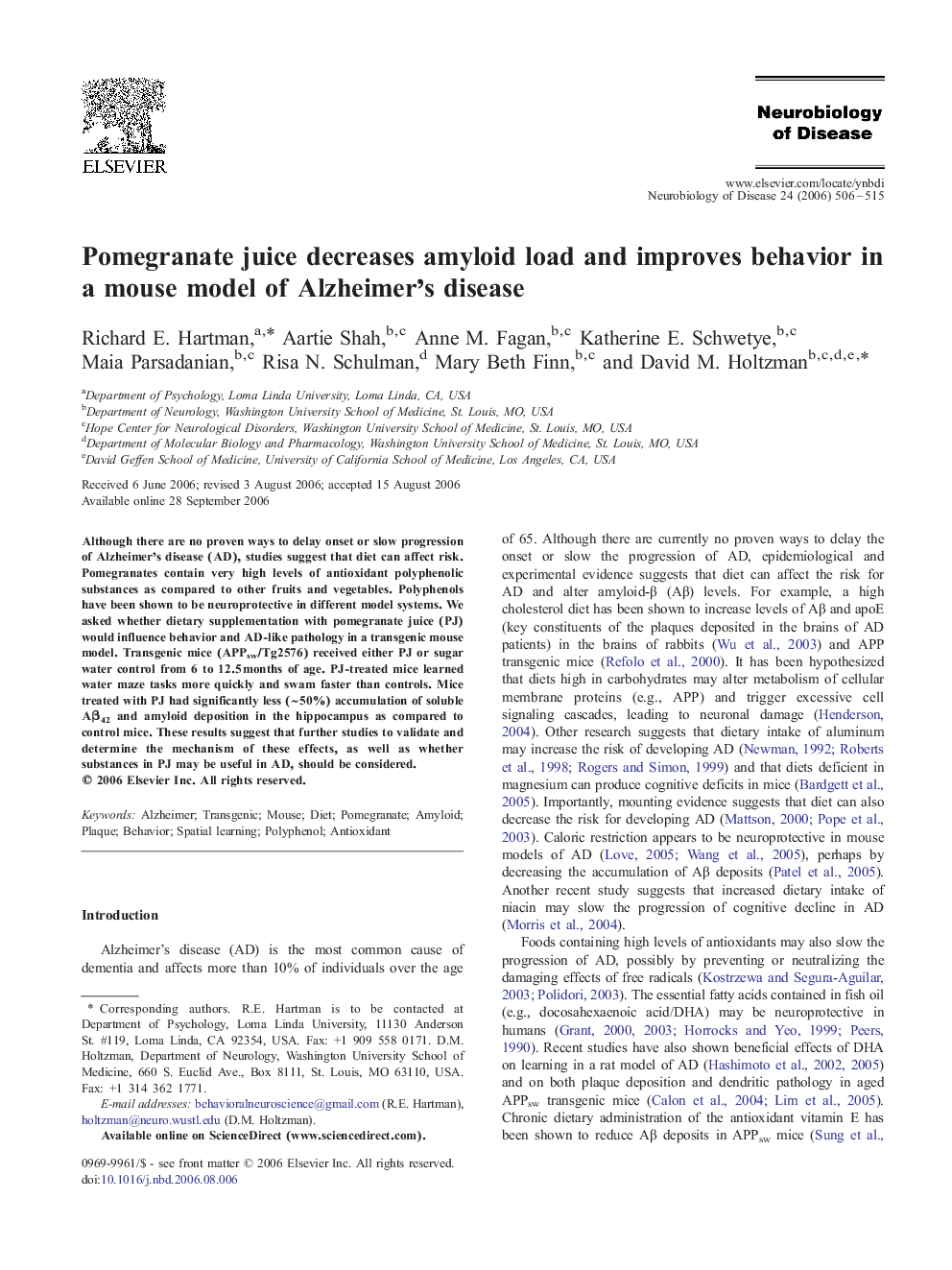| Article ID | Journal | Published Year | Pages | File Type |
|---|---|---|---|---|
| 3071050 | Neurobiology of Disease | 2006 | 10 Pages |
Although there are no proven ways to delay onset or slow progression of Alzheimer's disease (AD), studies suggest that diet can affect risk. Pomegranates contain very high levels of antioxidant polyphenolic substances as compared to other fruits and vegetables. Polyphenols have been shown to be neuroprotective in different model systems. We asked whether dietary supplementation with pomegranate juice (PJ) would influence behavior and AD-like pathology in a transgenic mouse model. Transgenic mice (APPsw/Tg2576) received either PJ or sugar water control from 6 to 12.5 months of age. PJ-treated mice learned water maze tasks more quickly and swam faster than controls. Mice treated with PJ had significantly less (∼ 50%) accumulation of soluble Aβ42 and amyloid deposition in the hippocampus as compared to control mice. These results suggest that further studies to validate and determine the mechanism of these effects, as well as whether substances in PJ may be useful in AD, should be considered.
